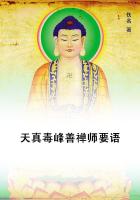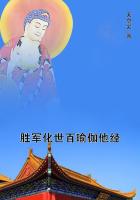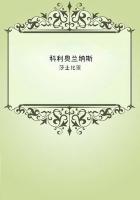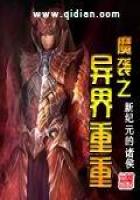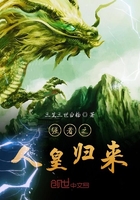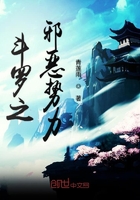She is the witness I am drawing this from. She has revealed it in her autobiography not intentionally, of course--I am not claiming that. An autobiography is the most treacherous thing there is. It lets out every secret its author is trying to keep; it lets the truth shine unobstructed through every harmless little deception he tries to play; it pitilessly exposes him as a tin hero worshipping himself as Big Metal every time he tries to do the modest-unconsciousness act before the reader. This is not guessing; I am speaking from autobiographical personal experience; I was never able to refrain from mentioning, with a studied casualness that could deceive none but the most incautious reader, that an ancestor of mine was sent ambassador to Spain by Charles I., nor that in a remote branch of my family there exists a claimant to an earldom, nor that an uncle of mine used to own a dog that was descended from the dog that was in the Ark; and at the same time I was never able to persuade myself to call a gibbet by its right name when accounting for other ancestors of mine, but always spoke of it as the "platform"--puerilely intimating that they were out lecturing when it happened.
It is Mrs. Eddy over again. As regards her minor half, she is as commonplace as the rest of us. Vain of trivial things all the first half of her life, and still vain of them at seventy and recording them with ***** satisfaction--even rescuing some early rhymes of hers of the sort that we all scribble in the innocent days of our youth--rescuing them and printing them without pity or apology, just as the weakest and commonest of us do in our gray age. More--she still frankly admires them; and in her introduction of them profanely confers upon them the holy name of "poetry." Sample:
"And laud the land whose talents rock The cradle of her power, And wreaths are twined round Plymouth Rock From erudition's bower."
"Minerva's silver sandals still Are loosed and not effete."
You note it is not a shade above the thing which all human beings churn out in their youth.
You would not think that in a little wee primer--for that is what the Autobiography is--a person with a tumultuous career of seventy years behind her could find room for two or three pages of padding of this kind, but such is the case. She evidently puts narrative together with difficulty and is not at home in it, and is glad to have something ready-made to fill in with. Another sample:
"Here fame-honored Hickory rears his bold form, And bears a brave breast to the lightning and storm, While Palm, Bay, and Laurel in classical glee, Chase Tulip, Magnolia, and fragrant Fringe-tree."
Vivid? You can fairly see those trees galloping around. That she could still treasure up, and print, and manifestly admire those Poems, indicates that the most daring and masculine and masterful woman that has appeared in the earth in centuries has the same soft, girly-girly places in her that the rest of us have.
When it comes to selecting her ancestors she is still human, natural, vain, commonplace--as commonplace as I am myself when I am sorting ancestors for my autobiography. She combs out some creditable Scots, and labels them and sets them aside for use, not overlooking the one to whom Sir William Wallace gave "a heavy sword encased in a brass scabbard," and *****ly explaining which Sir William Wallace it was, lest we get the wrong one by the hassock; this is the one "from whose patriotism and bravery comes that heart-stirring air, 'Scots wha hae wi' Wallace bled.'"
Hannah More was related to her ancestors. She explains who Hannah More was.
Whenever a person informs us who Sir William Wallace was, or who wrote "Hamlet," or where the Declaration of Independence was fought, it fills us with a suspicion wellnigh amounting to conviction, that that person would not suspect us of being so empty of knowledge if he wasn't suffering from the same "claim" himself. Then we turn to page 20 of the Autobiography and happen upon this passage, and that hasty suspicion stands rebuked:
"I gained book-knowledge with far less labor than is usually requisite.
At ten years of age I was as familiar with Lindley Murray's Grammar as with the Westminster Catechi**; and the latter I had to repeat every Sunday. My favorite studies were Natural Philosophy, Logic, and Moral Science. From my brother A1bert I received lessons in the ancient tongues, Hebrew, Greek, and Latin."
You catch your breath in astonishment, and feel again and still again the pang of that rebuke. But then your eye falls upon the next sentence but one, and the pain passes away and you set up the suspicion again with evil satisfaction:
"After my discovery of Christian Science, most of the knowledge I had gleaned from school-books vanished like a dream."
That disappearance accounts for much in her miscellaneous writings. As I was saying, she handles her "ancestral shadows," as she calls them, just as I do mine. It is remarkable. When she runs across "a relative of my Grandfather Baker, General Henry Knox, of Revolutionary fame," she sets him down; when she finds another good one, "the late Sir John Macneill, in the line of my Grandfather Baker's family," she sets him down, and remembers that he "was prominent in British politics, and at one time held the position of ambassador to Persia"; when she discovers that her grandparents "were likewise connected with Captain John Lovewell, whose gallant leadership and death in the Indian troubles of 1722-25 caused that prolonged contest to be known historically as Lovewell's War," she sets the Captain down; when it turns out that a cousin of her grandmother "was John Macneill, the New Hampshire general, who fought at Lundy's Lane and won distinction in 1814 at the battle of Chippewa," she catalogues the General. (And tells where Chippewa was.) And then she skips all her platform people; never mentions one of them. It shows that she is just as human as any of us.
Yet, after all, there is something very touching in her pride in these worthy small-fry, and something large and fine in her modesty in not caring to remember that their kinship to her can confer no distinction upon her, whereas her mere mention of their names has conferred upon them a faceless earthly immortality.

